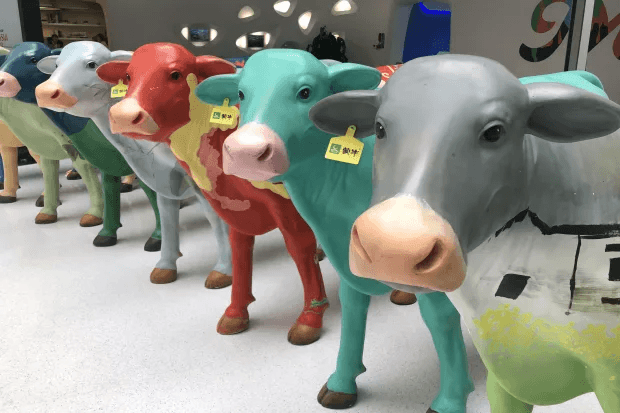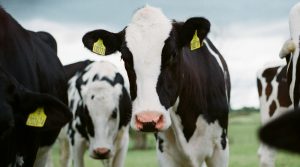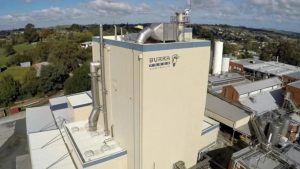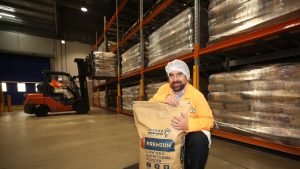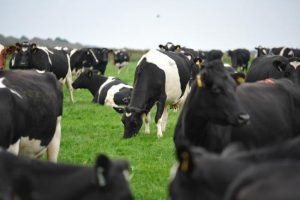
When Foreign Investment Review Board chairman David Irvine scrutinises the $600 million Chinese takeover of Lion Dairy & Drinks, he will test the deal against five key “national interest” criteria.
Although there is political angst in Canberra among some nationalist politicians, such as former Nationals leader Barnaby Joyce and One Nation senator Pauline Hanson, about another Chinese takeover, the FIRB analysis will rise above politics.
The China Mengniu Dairy Company takeover of Lion will be scrutinised against the FIRB’s criteria of national security, competition, impact on the economy and community, character of the investor and “other government policies” including tax and environmental compliance.
Based on a cool-headed, high-level application of these criteria, it is difficult to see how Irvine and his seven board members could oppose the deal when the FIRB makes its recommendation to Treasurer Josh Frydenberg.
Mengniu was last month approved unanimously by FIRB to buy infant formula group Bellamy’s Australia – a trend that Joyce says makes the latest deal a “creeping acquisition” of Australian food processing businesses.
Yet Lion’s dairy and drinks business has already been foreign owned for 15 years, first by the Philippines’ San Miguel and more recently by Japan’s Kirin.
Another fact Mengniu and Lion representatives have been briefing politicians in Canberra about is that there is no farm land involved in the deal.
In a well-timed October transaction, Lion divested two King Island dairy farms to Canadian dairy giant Saputo for $280 million as part of the sale of its specialty cheese business, which includes the King Island, South Cape, Tasmanian Heritage and Mersey Valley brands.
Nor does the takeover appear to risk national security, in stark contrast to earlier Chinese-linked bids for critical infrastructure such as electricity and gas pipeline assets, which the government rejected.
On competition grounds, Mengniu would not dominate the dairy and drink processing markets if it acquired Lion.
The Australian Competition and Consumer Commission is unlikely to raise major objections to the deal, though it will possibly consider whether micro-divestments are warranted in certain regional markets.
Lion collects and processes almost 10 per cent of the 9-billion-litre-a-year national milk pool.
It is ranked the fourth largest dairy processor behind behind Saputo, New Zealand’s Fonterra and France’s Lactalis (formerly Parmalat).
The local milk and cheese processing industry has significantly consolidated in recent years, following Saputo’s takeover of Warrnambool Cheese & Butter and Murray Goulburn.
The government allowed these two Canadian takeovers, so it would be a big call to reject a smaller Chinese acquisition.
Competition unlikely to erode
Rabobank senior dairy analyst Michael Harvey says the ACCC is unlikely to find an erosion of competition across Lion’s national footprint.
The business spans milk manufacturing in six states, yoghurt and dairy dessert processing in Morwell in regional Victoria, juice manufacturing in NSW, and dairy and drink joint venture manufacturing sites in Canberra and at Wodonga near the Victoria-NSW border.
“There is no region where you think there is an erosion of competition because it is a takeover of an existing collection of milk processing assets and Mengniu doesn’t have retail brands on the shelf,” Harvey says.
“They will assess eastern Victoria because Mengniu already has a majority shareholding in Burra Foods in Gippsland.”
Burra Foods controls about 300 million litres of the 2-billion-litre Gippsland milk pool, which is vigorously contested by about eight or nine players.
When Saputo bought Murray Goulburn for $1.31 billion in 2017, the ACCC required a plant divestment in western Victoria.
On the other hand, casual observers sometimes overlook the fact that the final decision on foreign investment deals rests with the Treasurer, not FIRB.
Yet unless politics overrides economics in the current context, Frydenberg appears to have little reason to oppose the takeover.
It is plausible to assume that the Treasurer will attach conditions to the deal – such as guaranteeing future investment in Lion’s export development – as he did last month in approving Mengniu’s $1.5 billion takeover of Bellamy’s.
Those conditions included that a majority of Bellamy’s directors be Australian citizens residing in the country, that the company headquarters remain in Australia for at least the next 10 years, and that the firms spends at least $12 million on establishing or improving milk formula processing facilities in Victoria.
Mengniu has invested about $27 million over the past three years in Burra Foods.
Lion, which is primarily domestically focused but has ambitions to export more to meet surging Chinese consumer demand, says Mengniu has a global reach, as well as a track record of investing in the Australian dairy industry.
“Bringing the businesses together will help drive Mengniu Dairy’s growth in the Australian domestic market, while also accelerating Dairy & Drinks’ aspirations in south-east Asia and China,” Lion says.
Morgans agriculture, food and beverage analyst Belinda Moore says Mengniu “has very good China distribution, so it can probably fast-track the China growth strategy for more Australian products”.
